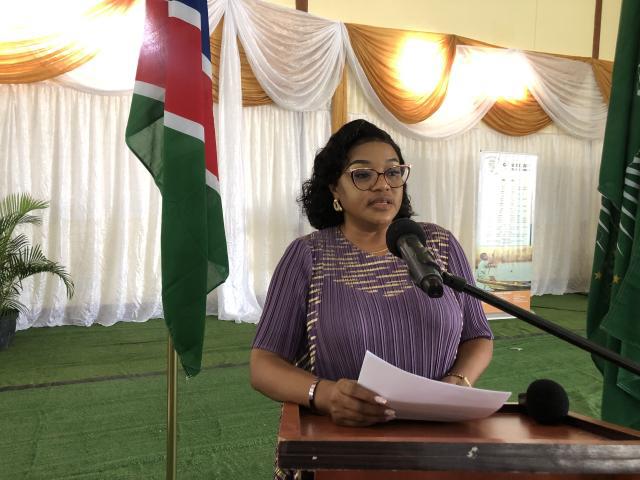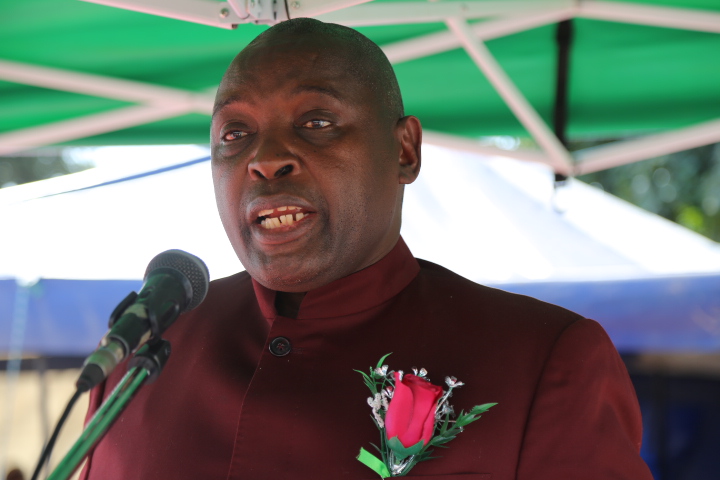WASHINGTON – Apart from President George W Bush’s reassurances of unwavering support for Palestinian statehood, there is little his administration is set to do in the short term to try to break the Middle East deadlock.
Administration strategists, wrestling with one of the biggest international problems Bush will face in his next four years in office, seem convinced that serious progress toward that goal is going to take some time. First off, they must wait out Yasser Arafat’s possibly terminal illness and then gauge whether his successors can maintain calm and provide Israel with a partner for negotiations.Second, the most promising opening for peacemaking — Israeli Prime Minister Ariel Sharon’s projected withdrawal from Gaza and part of the West Bank — is not due to begin until next year.The plan also requires final approval by the Israeli government.Palestinian groups that have levelled deadly attacks on Israeli civilians could sabotage that opening, and it will take time to know whether new Palestinian leaders will handcuff them.Both Bush and Sharon are loath to start negotiations amid violence.Meanwhile, State Department spokesman Richard Boucher made clear on Friday that the US-backed “road map”, and not some new approach, remains the administration’s vehicle for getting to the peace table.”The kind of steps that have been identified to get there are the steps that we will continue to encourage,” he said.These include demands that violent groups be controlled, Israeli outposts be removed from the West Bank and Israeli settlement activity be suspended.As American strategists consider their moves, Bush is coming under increased pressure from European allies to assume a more aggressive posture.After speaking with Bush by telephone Wednesday, British Prime Minister Tony Blair, the president’s closest ally in Iraq, said working toward Israeli-Palestinian peace was “the single most pressing political challenge in our world today”.”Therefore, we must be relentless in our war against terrorism and in resolving the conditions and causes on which the terrorists prey,” Blair said.”We should work with President Bush on this agenda.It is one which all nations of goodwill would surely agree.”Richard N Haass, who headed the State Department’s policy planning office for more than two years of Bush’s first term, said on Friday that “you need a Palestinian partner to make Israel comfortable with the withdrawal and to make it work.”Haass said Bush should send a letter to the Palestinians with assurances of support on a number of tough issues, including that the Israeli-held territory that would become a Palestinian state would be contiguous, and there should be compensation in money or territory for not resettling Palestinian refugees in Israel.The letter would parallel the one Bush gave Sharon earlier in the year in which the president supported Israel’s retention of Jewish settlements near its border and rejected Palestinian claims that refugees have a right to return to Israel.Haass, who also directed Middle East policy at the National Security Council for the first President Bush, said he would not recommend this president take a position on Jerusalem’s future.Relative calm has prevailed during Arafat’s illness as the Palestinians set up a sort of co-operative structure keyed to Mahmoud Abbas, known popularly as Abu Mazen, and Ahmed Qureia, familiarly known as Abu Ala.The Bush administration hopes the calm they have been able to maintain will continue, a senior US official said.And, speaking on condition of anonymity, he said the administration also hoped that fledgling Palestinian government institutions would develop.On the Israeli side, officials said there are some 50 terror alerts a day, and the relative calm is due to interception by Israeli forces of would-be attackers.James Phillips, Middle East specialist at the Heritage Foundation, said Arafat has “really poisoned the atmosphere for prospective peace talks, promising so many things and failing to deliver so often, he eroded Israeli trust in a Palestinian negotiating partner”.”Hopefully, after he passes from the scene the Palestinians can develop a more constructive approach than Arafat’s disastrous strategy,” Phillips said in an interview.The onus for reviving the stalled peace process should be on the Palestinians and not on the United States, he said.Edward S Walker, a former US ambassador to Egypt and Israel, said the first step the administration should take is to send an emissary to Arafat’s funeral and while in the area to sound out Abbas and Qureia to “take the pulse” and also to talk to Sharon in Israel.Also, Walker, now president of the Middle East Institute in Washington, said in an interview, the so-called Quartet that produced the road map for peacemaking — the United States, United Nations, European Union and Russia — should meet to reinvigorate the blueprint and show that it is still alive.- Nampa-AP * Barry Schweid is diplomatic correspondent for The Associated Press.First off, they must wait out Yasser Arafat’s possibly terminal illness and then gauge whether his successors can maintain calm and provide Israel with a partner for negotiations.Second, the most promising opening for peacemaking — Israeli Prime Minister Ariel Sharon’s projected withdrawal from Gaza and part of the West Bank — is not due to begin until next year.The plan also requires final approval by the Israeli government.Palestinian groups that have levelled deadly attacks on Israeli civilians could sabotage that opening, and it will take time to know whether new Palestinian leaders will handcuff them.Both Bush and Sharon are loath to start negotiations amid violence.Meanwhile, State Department spokesman Richard Boucher made clear on Friday that the US-backed “road map”, and not some new approach, remains the administration’s vehicle for getting to the peace table.”The kind of steps that have been identified to get there are the steps that we will continue to encourage,” he said.These include demands that violent groups be controlled, Israeli outposts be removed from the West Bank and Israeli settlement activity be suspended.As American strategists consider their moves, Bush is coming under increased pressure from European allies to assume a more aggressive posture.After speaking with Bush by telephone Wednesday, British Prime Minister Tony Blair, the president’s closest ally in Iraq, said working toward Israeli-Palestinian peace was “the single most pressing political challenge in our world today”.”Therefore, we must be relentless in our war against terrorism and in resolving the conditions and causes on which the terrorists prey,” Blair said.”We should work with President Bush on this agenda.It is one which all nations of goodwill would surely agree.”Richard N Haass, who headed the State Department’s policy planning office for more than two years of Bush’s first term, said on Friday that “you need a Palestinian partner to make Israel comfortable with the withdrawal and to make it work.”Haass said Bush should send a letter to the Palestinians with assurances of support on a number of tough issues, including that the Israeli-held territory that would become a Palestinian state would be contiguous, and there should be compensation in money or territory for not resettling Palestinian refugees in Israel.The letter would parallel the one Bush gave Sharon earlier in the year in which the president supported Israel’s retention of Jewish settlements near its border and rejected Palestinian claims that refugees have a right to return to Israel.Haass, who also directed Middle East policy at the National Security Council for the first President Bush, said he would not recommend this president take a position on Jerusalem’s future.Relative calm has prevailed during Arafat’s illness as the Palestinians set up a sort of co-operative structure keyed to Mahmoud Abbas, known popularly as Abu Mazen, and Ahmed Qureia, familiarly known as Abu Ala.The Bush administration hopes the calm they have been able to maintain will continue, a senior US official said.And, speaking on condition of anonymity, he said the administration also hoped that fledgling Palestinian government institutions would develop.On the Israeli side, officials said there are some 50 terror alerts a day, and the relative calm is due to interception by Israeli forces of would-be attackers.James Phillips, Middle East specialist at the Heritage Foundation, said Arafat has “really poisoned the atmosphere for prospective peace talks, promising so many things and failing to deliver so often, he eroded Israeli trust in a Palestinian negotiating partner”.”Hopefully, after he passes from the scene the Palestinians can develop a more constructive approach than Arafat’s disastrous strategy,” Phillips said in an interview.The onus for reviving the stalled peace process should be on the Palestinians and not on the United States, he said.Edward S Walker, a former US ambassador to Egypt and Israel, said the first step the administration should take is to send an emissary to Arafat’s funeral and while in the area to sound out Abbas and Qureia to “take the pulse” and also to talk to Sharon in Israel.Also, Walker, now president of the Middle East Institute in Washington, said in an interview, the so-called Quartet that produced the road map for peacemaking — the United States, United Nations, European Union and Russia — should meet to reinvigorate the blueprint and show that it is still alive.- Nampa-AP * Barry Schweid is diplomatic correspondent for The Associated Press.
Stay informed with The Namibian – your source for credible journalism. Get in-depth reporting and opinions for
only N$85 a month. Invest in journalism, invest in democracy –
Subscribe Now!










